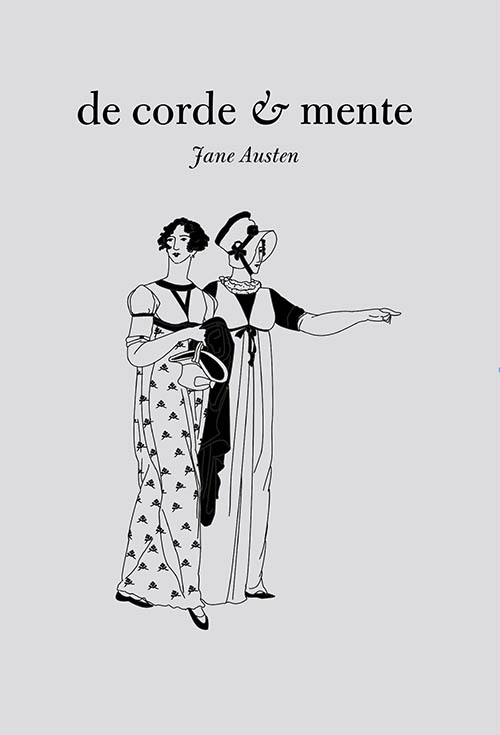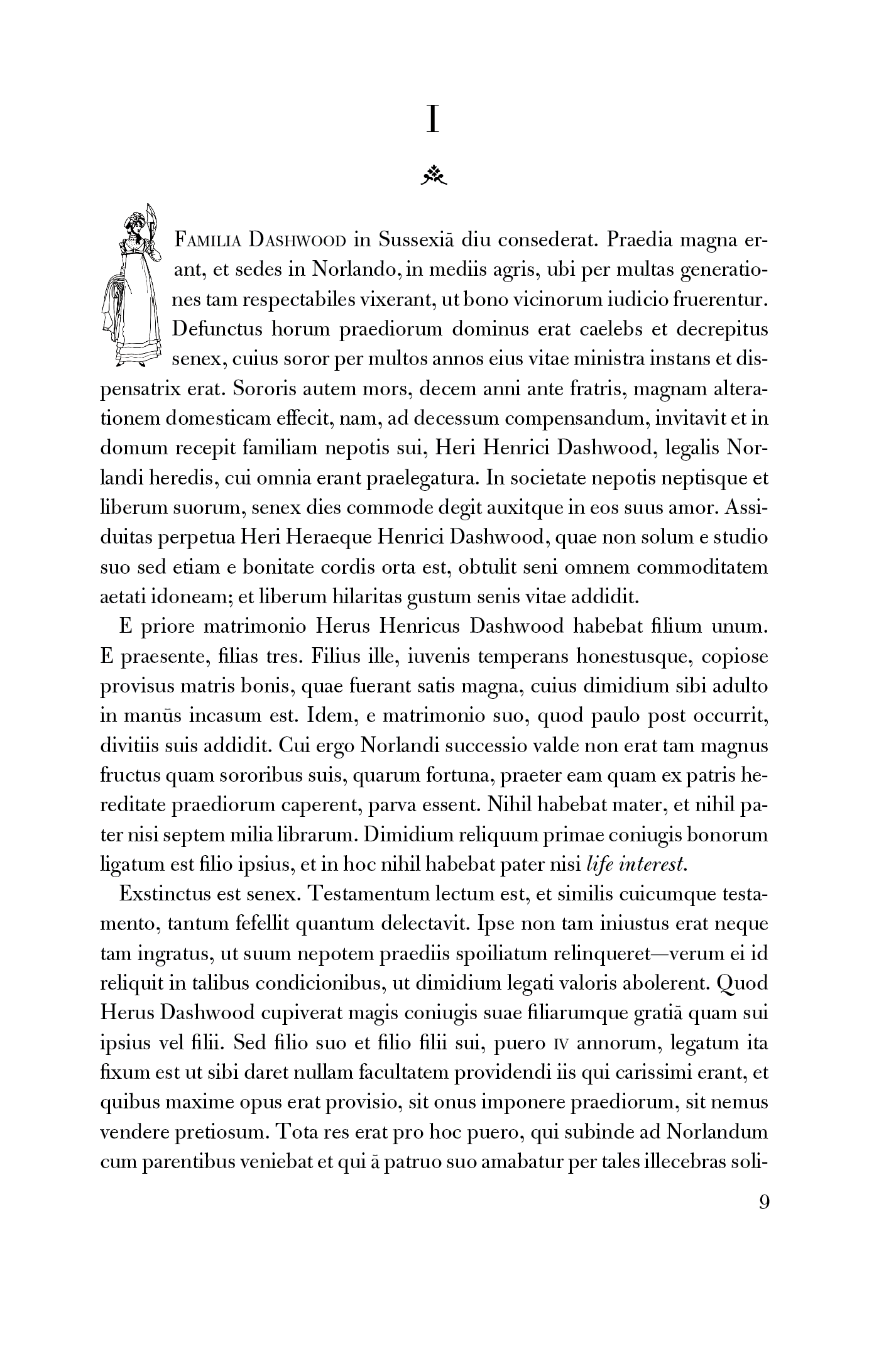From the Heart, from the Mind

To purchase a copy of De Corde et Mente, click here.
Jane Austen's Sense and Sensibility in Latin
I based my translation on the English translations of classical Roman authors done by twentieth-century scholars for the Loeb series. In this way—and with the help of the computer—I was able to see how terse Latin was turned into scholarly English and, by some kind of linguistic reverse engineering, distill Miss Austen’s Georgian English into Augustan Latin. Of particular help in this regard was an eighteenth-century scholar named William Melmoth, who translated Pliny the Younger’s letters in 1746. Melmoth’s translation is considered by some to be a masterpiece of the English language. Although Melmoth was dead some twelve years when Jane Austen published Sense and Sensibility in 1811, their lives did overlap, for our author was twenty-four when our translator died in May of 1799. All of this is to say that both Melmoth and Austen shared the same English style, which is flowery and verbose [to us in the twenty-first century], clever and witty [to any who would take the time to read their work with care]. And thus, for me, Melmoth became a gem-mine of bygone phraseology, a way to find my way from Austen to Augustus. ¶To those well-steeped in the literary relics of Rome’s past, they will find that I borrowed not a little from two surviving novels, Metamorphosis and Satyricon. Unlike Pliny’s letters—or Cicero’s or Seneca’s for that matter—Apuleius and Patronius left us the mechanics of lively storytelling. With them, we see how events were glued together with words, how suspense and drama were captured. While I have a sneaking suspicion that Miss Austen would not have approved of either of these racy novels or of their style, I do think she would have appreciated their wit and their gift for surprise. ¶As for style, Austen’s was more Ciceronian than it was Apuleian or Patronian—at least, as I think people in the eighteenth century perceived Ciceronianness to be. Latin authors took on a new look in English. The translators pumped up the Albion tongue with Latinate words, periodicity, and bucketsful of commas, hoping to make English as august, as strong, and as capable of ruling the world as Latin once had been. ¶My translation, however, is not without its own bucketsful of commas. Nevertheless, I hope that I have been as direct as Cicero and as lively as Apuleius. I cannot claim here to write with their ease or fluency or economy of expression. I can only claim that I have tried. ¶As for the title, I felt that a direct translation such as Ratio et Animus or Sensus et Sententia would miss Miss Austen's clever play on words and might even be misleading. Fortunately, Jules Castier's 1948 French translation, Le Cœur et la Raison, came to my rescue and inspired me to write de corde [of heart] et mente [mind].




